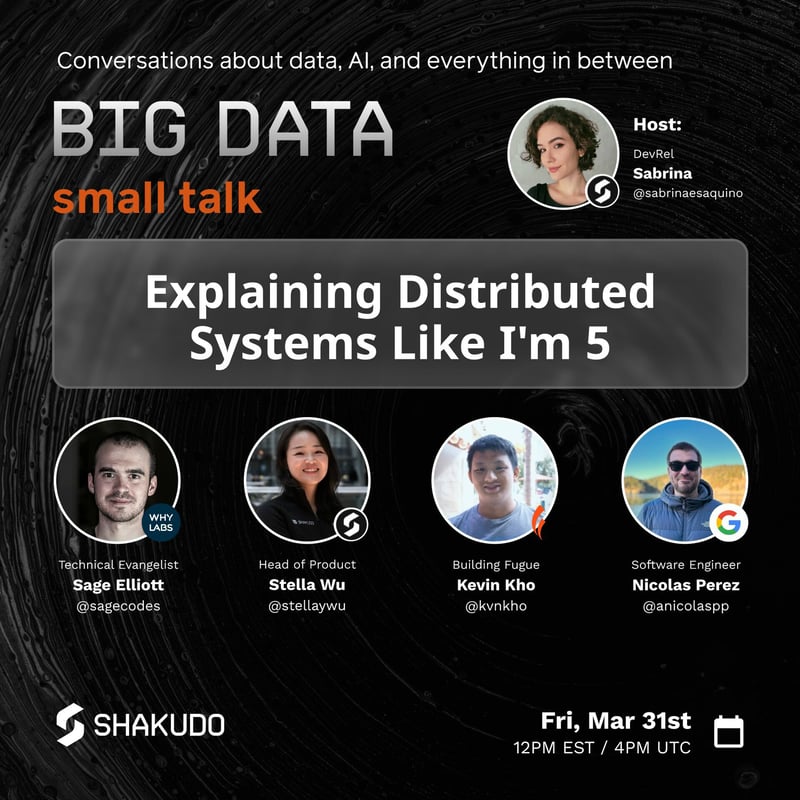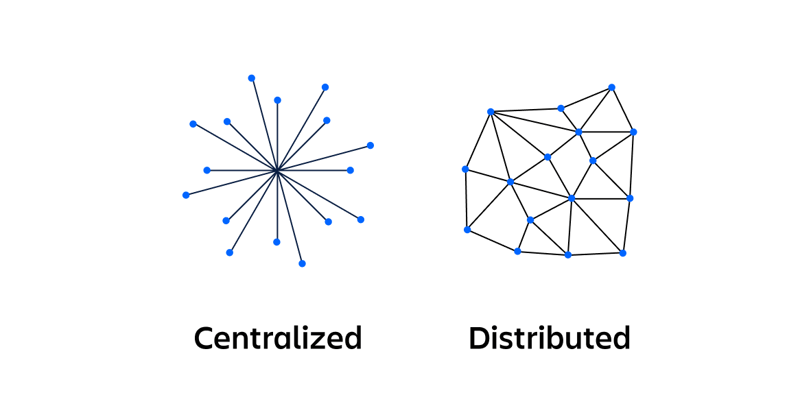TL;DR
Let's break down distributed systems! In this blog post, I'll explore how a group of computers works together as a team to handle big tasks and see how these systems are essential for solving real-world problems, optimizing databases and computing, and playing a major role in MLOps. I'll also be hosting a Twitter Space tomorrow, where four distributed systems experts and I will dive deeper into building and maintaining distributed systems, addressing challenges, and sharing some best practices.d
What are distributed systems?
Imagine you're building a huge Minecraft castle, and you have to gather resources, craft items, and construct the entire structure on your own. It would be overwhelming and time-consuming to do everything by yourself. So, you invite your friends to join your server and help you. Each of you takes responsibility for gathering specific resources, crafting particular items, and constructing parts of the castle, making the whole process much faster and more enjoyable. That's what distributed systems are like – they take a big, complex task and break it down into smaller, manageable parts that can be done by different computers working together.
In the world of computing, there are lots of tasks that are just too big for one computer to handle, and just like the Minecraft castle, these tasks need the help of many computers to get the job done quickly and efficiently. These computers work together as a team to complete the task by dividing it into smaller pieces.
How do they work?
Have you ever played a game of "Telephone"? It's a bit like that. Each computer passes along a message to the next one. They use "special languages", called protocols, to communicate with each other and share information, making sure that every computer has the information of what's going on and what part of the task they need to work on.
To make sure the computers can communicate well and maintain consistency across the system, distributed systems use various algorithms and protocols. Consensus algorithms like Paxos and Raft help nodes agree on the state of the system, while data replication techniques like sharding and partitioning distribute data across computers for better fault tolerance, which means they can keep working even when something goes wrong.
Where is it?
Distributed systems are widely used in real-world applications by some of the most popular tech companies. For instance, Google uses distributed systems in its search engine infrastructure to handle billions of queries and return results quickly. Also, Netflix relies on distributed systems to manage and deliver its massive library of movies and TV shows to millions of users around the globe. We can also mention AWS and Microsoft Azure, which provide cloud computing platforms built on distributed systems that enable businesses to scale their applications and services efficiently.
If you're interested in getting started with distributed systems, there are plenty of resources available to help. You can begin by exploring online courses and tutorials covering the basics of distributed computing and parallel processing. It's also a great idea to experiment with some of the popular tools and technologies, like Apache Kafka, Apache Spark, and Dask. Working hands-on with these tools will give you a deeper understanding of how distributed systems work in practice and build the skills needed to work with them effectively.
Let's talk about it!
Looking for a live discussion about it with top industry experts to answer all your questions? Well, this is your lucky day.
I'm excited to invite you to our upcoming Twitter Spaces event, where we'll dive even deeper into distributed systems. We have an outstanding panel of experts who will share their knowledge and insights about distributed systems, answering all your questions and helping you easily learn this complex topic.
The Spaces will happen tomorrow (Friday, March 31st) at 12 pm EST.
Mark on your calendars and access the event through this link:
https://twitter.com/i/spaces/1LyxBqRwLYWJN?s=20

Set your reminders!
Won't be able to attend live but would still like to watch? The recorded Spaces will be available on the same link.





















